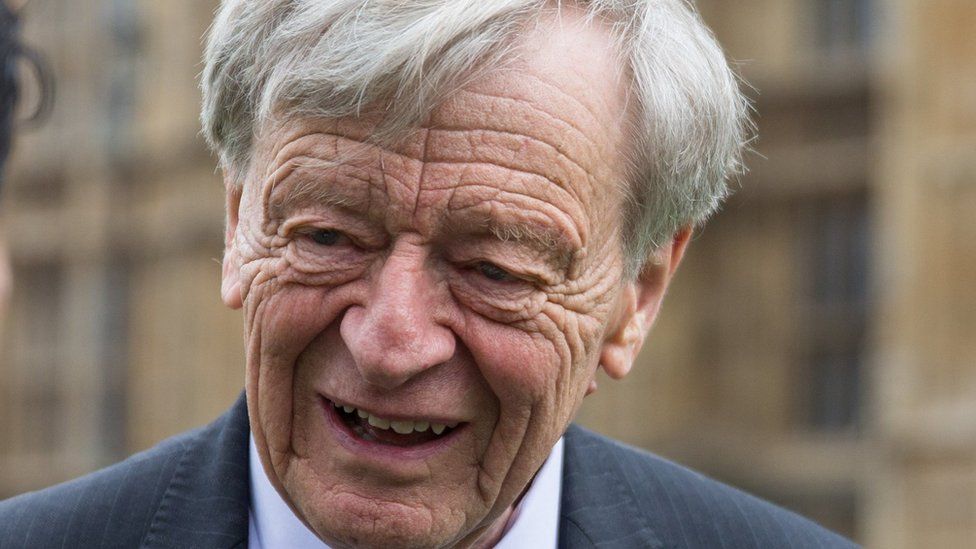Child migrants: UK to end 'Dubs amendment' commitment
- Published

A key route into the UK for children caught up in Europe's migrant crisis is to close after a total of 350 arrivals.
In a written ministerial statement, the Home Office said it would stop receiving children via the so-called Dubs amendment at the end of March.
The law, designed by peer and former refugee Lord Dubs, aimed to help some of the estimated 90,000 unaccompanied migrant children across Europe.
The peer has accused ministers of a "shameful" decision.
A legal challenge on how the government has handled the legal commitment will go ahead on Friday.
Ministers accepted the Dubs amendment last year after months of pressure from campaigners and members of the public to take children from the "Jungle" migrant camp in Calais.
The amendment to the Immigration Act 2016 required the home secretary to bring a specified number of unaccompanied refugee children to the UK after consultation with local authorities. While there was no target number written into the legislation Lord Dubs and his supporters had suggested the UK could help 3,000 of the most vulnerable.
In Wednesday's statement, Immigration Minister Robert Goodwill said 200 had already arrived and a further 150 children would follow before the end of March, filling the available places offered by local authorities.
A further 700 unaccompanied children had arrived in the UK under separate EU-wide rules designed to reunite families.
Separately, the UK has settled 4,400 individuals directly from Middle East camps under an international programme to help displaced Syrians, half of whom are children.
Responding to the decision, Lord Dubs said: "Britain has a proud history of welcoming refugees. At a time when Donald Trump is banning refugees from America, it would be shameful if the UK followed suit by closing down this route to sanctuary for unaccompanied children just months after it was opened."
"During the Kindertransport, Sir Nicky Winton rescued 669 children from Nazi persecution virtually single-handedly. I was one of those lucky ones. It would be a terrible betrayal of his legacy if as a country we were unable to do more than this to help a new generation of child refugees.
"I urge the prime minister to show leadership by continuing and building on this programme, not shutting the door to some of the most vulnerable refugee children."
Ministers say that the UK has been at the "forefront" of the international response to the Syria crisis, pledging more than £2.3bn in aid, the UK's largest ever spend on a single catastrophe.
Help Refugees, one of the British charities working in France, had already launched legal action against the government's handling of Dubs. Its judicial review, which will be heard on Friday, argues that ministers failed to consult local authorities properly about how many unaccompanied children could be housed.
Senior Church of England clergy have condemned the decision. The Bishop of Croydon, the Rt Revd Jonathan Clark, who has been involved with the church's efforts to welcome child migrants, said the government was "in effect helping the trafficking industry".
He said: "The Dubs amendment, as Alf Dubs originally put it forward, proposed a commitment to 3,000 children and ministers signalled that the Government would abide by the spirit of the original amendment. There is a huge question over how about 400 is in the spirit of 3,000."
- Published10 July 2016
- Published26 April 2016